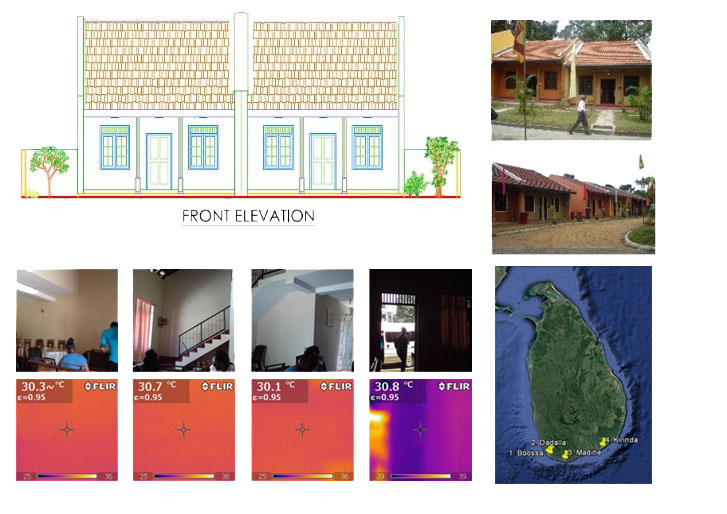
Funding body: University of Moratuwa Senate Research Committee Short Term Grant
Principal Investigator (For Kent): Dr Giridharan Renganathan
Co-Investigators: Dr Shaleeni B A Coorey (Project-PI), Dr Narein G R Perera, Prof. Rohinton Emmanuel
Project partners: University of Moratuwa, Glasgow Caledonian University
Summary
The Indian Ocean Tsunami (2004) had a great impact on the local land formation, vegetation and settlement patterns in Sri Lanka. The re-housing developed to settle the displaced people were carried out in mass scale over a period of two to three years. By and large the design guidelines and criteria for re-settlement had little or no consideration for thermal comfort and climate change. This research seeks to address this issue. The study will monitor the indoor temperature of the bedroom and the living room in five different house types in terms of layout, form and material in the South of Sri Lanka with similar geographical characteristics during summer using Hobo loggers. The monitored data will be assessed against ASHRAE thermal comfort criteria. A questionnaire survey will be carried out during the monitoring period to capture the occupant’s preferences and actions to mitigate the overheating conditions in the spaces under study. Finally study will attempt to model passive improvements to minimise the overheating using Dynamic thermal modelling software (Design Builder).